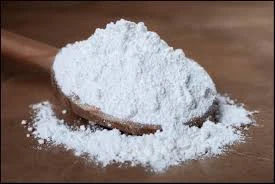
Potash Fertilizer
Understanding Potash Fertilizer Importance and Usage
Potash fertilizer, containing potassium, is one of the three primary macronutrients essential for plant growth, alongside nitrogen and phosphorus. Often referred to as the K component in the NPK (Nitrogen-Phosphorus-Potassium) fertilizer trio, potash plays a vital role in various plant functions. Its significance in agriculture cannot be overstated, as it directly influences crop yield, quality, and overall health.
Potassium is crucial for several physiological processes in plants. It helps in water regulation, enzyme activation, and photosynthesis, as well as in the synthesis of proteins and starches. Additionally, potassium increases a plant’s resistance to diseases, droughts, and extreme weather conditions. This resilience is increasingly important in the context of climate change and fluctuating weather patterns, making potash applications a key consideration for farmers seeking to maximize their harvests under challenging conditions.
There are various forms of potash fertilizer available on the market today, with potassium chloride (KCl) being the most common. Other forms include potassium sulfate (K2SO4) and potassium nitrate (KNO3). Each type varies in its potassium content and the presence of other nutrients, allowing farmers to choose the most appropriate formulation for their specific soil conditions and crop requirements.
potash fertilizer

Soil testing is critical before applying potash fertilizers. By assessing nutrient levels and soil composition, farmers can determine the right amount and type of potash needed to enhance soil fertility effectively. Over-application of potash can lead to environmental issues, such as nutrient runoff into waterways, which can cause algal blooms and other ecological problems. Thus, following guidelines and application recommendations is essential for sustainable farming practices.
Moreover, the timing of potash application can significantly impact its effectiveness. Incorporating it into the soil before planting can provide essential nutrients during the critical stages of crop development. However, split applications, where potash is applied at various stages of growth, can also be beneficial, helping to maintain optimal nutrient levels throughout the growing season.
In conclusion, potash fertilizer is a fundamental component of modern agriculture, playing a critical role in enhancing crop yield and quality. Understanding its importance and how to use it effectively can lead to more sustainable farming practices, better resource management, and ultimately, increased food security. As the global population continues to rise, the efficient use of potash will be integral to meeting the growing demand for food while minimizing environmental impact.
-
The Safety Challenges of Ammonium Nitrate FertilizerNewsJun.26,2025
-
The Critical Role of Mining ChemicalsNewsJun.26,2025
-
Shelf Life of Glacial Acetic Acid Food GradeNewsJun.26,2025
-
Enhancing PVC Longevity with 1,2,3-Benzotriazole InnovationsNewsJun.26,2025
-
China’s Dominance in Food Additive ProductionNewsJun.26,2025
-
Can Aluminum Hydroxide Replace More Toxic Alternatives?NewsJun.26,2025
-
PE and PP Plastics with Benzotriazole AdditivesNewsJun.12,2025
Hebei Tenger Chemical Technology Co., Ltd. focuses on the chemical industry and is committed to the export service of chemical raw materials.
-

view more DiethanolisopropanolamineIn the ever-growing field of chemical solutions, diethanolisopropanolamine (DEIPA) stands out as a versatile and important compound. Due to its unique chemical structure and properties, DEIPA is of interest to various industries including construction, personal care, and agriculture. -

view more TriisopropanolamineTriisopropanolamine (TIPA) alkanol amine substance, is a kind of alcohol amine compound with amino and alcohol hydroxyl, and because of its molecules contains both amino and hydroxyl. -

view more Tetramethyl Thiuram DisulfideTetramethyl thiuram disulfide, also known as TMTD, is a white to light-yellow powder with a distinct sulfur-like odor. It is soluble in organic solvents such as benzene, acetone, and ethyl acetate, making it highly versatile for use in different formulations. TMTD is known for its excellent vulcanization acceleration properties, which makes it a key ingredient in the production of rubber products. Additionally, it acts as an effective fungicide and bactericide, making it valuable in agricultural applications. Its high purity and stability ensure consistent performance, making it a preferred choice for manufacturers across various industries.











